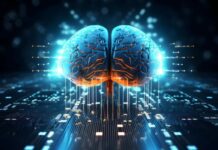World is undergoing a significant transformation, driven largely by advancements in technology. The field of education is no exception. Integration of artificial intelligence (AI) is a significant advancement that is driving this change. One of the most promising developments is the integration of artificial intelligence (AI) into the creation and management of curricula. As educators and institutions seek to meet the diverse needs of students in an ever-evolving landscape, Generative AI (Gen AI) offers powerful tools to create dynamic and responsive curricula that enhance learning experiences and outcomes.
One of the most significant ways AI can influence curriculum development is through personalized learning. Traditional curricula often adopt a one-size-fits-all approach, which can leave many students disengaged or struggling. AI, however, can analyze vast amounts of data on student performance, preferences, and learning styles. By leveraging this information, educational platforms can create customized learning pathways tailored to individual needs. An AI system could be built to assess student’s strength and weakness in the learning areas/domains. Gen AI can facilitate the development of adaptive learning pathways that respond in real time to student progress. By continuously assessing a learner’s understanding and skills, AI can adjust the curriculum dynamically. If a student excels in certain areas, the system can provide advanced materials or skip to more challenging concepts. Conversely, if a student struggles, the AI can offer additional resources or modify the pace of instruction. This ensures they are always challenged at an appropriate level, fostering deeper understanding and retention.
AI can also enhance student engagement through interactive and immersive learning experiences. Technologies such as virtual reality (VR) and augmented reality (AR), combined with AI, can create simulations that allow students to explore complex concepts in an interactive manner. For example, in science and medical education, it enables the learners to perform dissections/operations in virtual manner.
The insights generated by AI are not only beneficial for students; they also empower educators. By analysing data on student engagement, performance, and participation, AI can help teachers identify effective instructional strategies and areas that require improvement. This information enables educators to make informed decisions about curriculum adjustments, resource allocation, and teaching methods.
Furthermore, AI can support collaborative learning environments by analyzing group dynamics and recommending strategies to foster better teamwork and communication. Educators can leverage these insights to create a more inclusive and effective learning environment that addresses the unique needs of all students.
In a world characterized by rapid change, the ability to adapt curricula quickly is essential. AI can facilitate this flexibility by providing real-time data on emerging trends, industry demands, and student interests. For example, if a new technology or skill becomes crucial in the job market, AI can alert educators to incorporate relevant content into the curriculum swiftly.
Additionally, AI can help institutions stay compliant with changing educational standards and regulations. By continuously analysing curricula against these benchmarks, AI systems can recommend necessary adjustments, ensuring that educational offerings remain relevant and effective.
In ’s classrooms, diversity is a hallmark of the student population. Gen AI can help create inclusive curricula that address the varied needs of learners, including those with disabilities or language barriers. Automatic captioning and language translation tools powered by AI make courses more accessible to a global audience, ensuring that learners can engage with content in their preferred language or format. Furthermore, AI can analyze language proficiency and cultural background, allowing educators to design materials that resonate with diverse student groups. This inclusivity not only enhances engagement but also fosters a more equitable learning environment. Online learning platforms powered by AI can reach students in remote or underserved areas, breaking down barriers to education. By providing personalized learning experiences at scale, AI ensures that all students, regardless of their geographic or socio-economic background, have access to the same quality of education.
The content creation process can be labour-intensive and time-consuming for educators. Gen AI simplifies this process by generating high-quality educational materials, including lesson plans, quizzes, and multimedia resources. By using natural language processing and machine learning algorithms, AI can analyse existing educational content and create new materials that align with learning objectives and standards. Moreover, Gen AI can curate existing resources, helping educators find relevant articles, videos, and interactive tools that enhance the curriculum. This capability not only saves time but also ensures that educators have access to a rich pool of resources to enhance their teaching.
While the potential benefits of Gen AI in curriculum development are substantial, it is essential to approach its implementation with caution. Ethical considerations, such as data privacy, algorithmic bias, and the importance of human oversight, must be taken into account. Ensuring that AI systems are transparent and equitable is crucial for building trust among educators and students.
Additionally, while Gen AI can automate many processes, it should not replace the essential role of teachers. Educators are irreplaceable in fostering critical thinking, creativity, and social-emotional skills—qualities that are vital for holistic education.
Generative AI is revolutionizing curriculum development by enabling personalized learning, adaptive pathways, and data-driven insights. As educational institutions increasingly embrace this technology, they can create more engaging and effective learning experiences that meet the diverse needs of students. However, it is crucial to navigate the ethical challenges associated with AI and maintain the central role of educators in the learning process. By leveraging the power of Gen AI thoughtfully, we can pave the way for a more innovative and inclusive educational landscape.
















